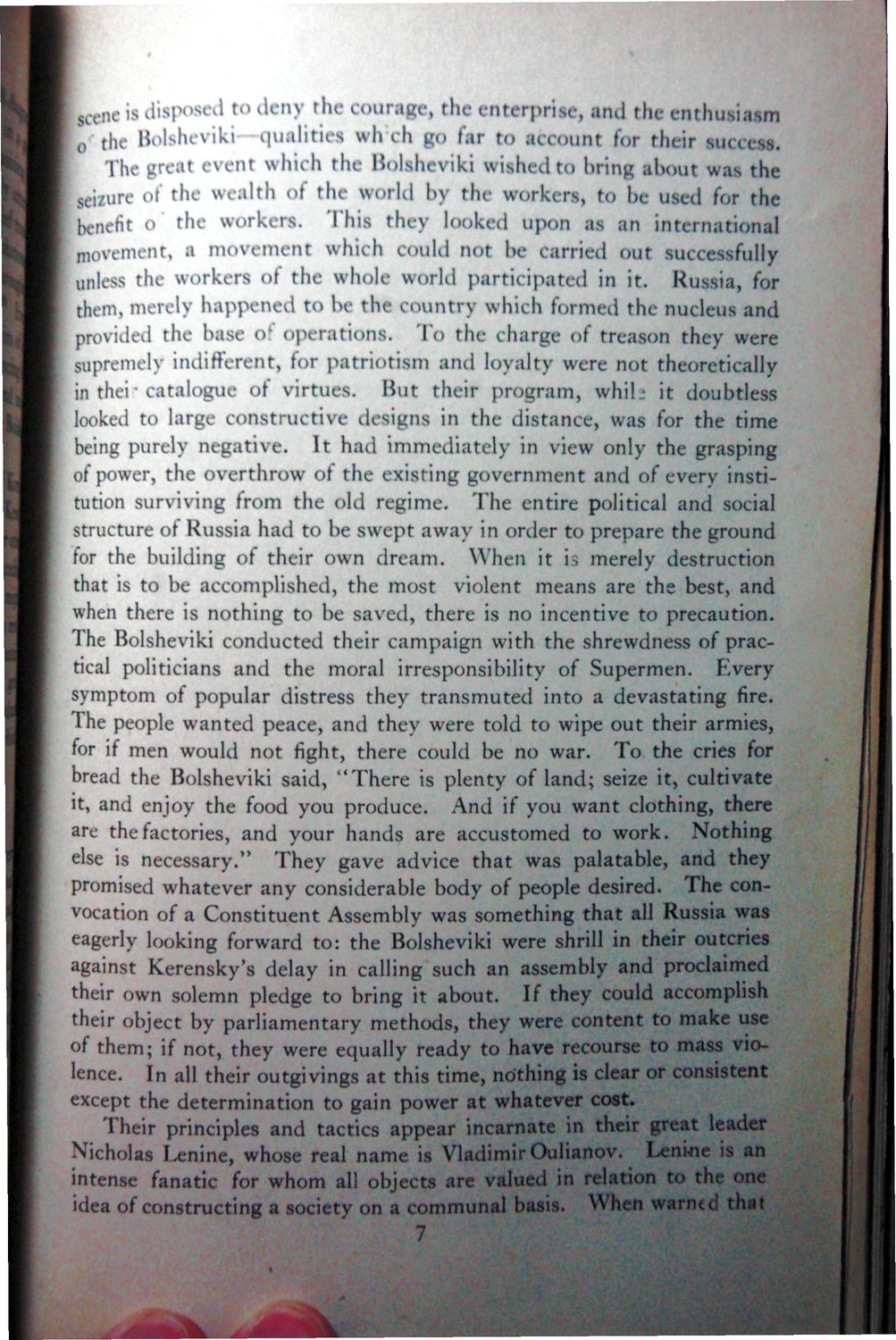| |
| |
Caption: War Publications - WWI Compilation 1923 - Article 22
This is a reduced-resolution page image for fast online browsing.

EXTRACTED TEXT FROM PAGE:
scene is disposed to deny the courage, the enterprise, and the enthusiasm qualities wh eh go far to account for their sureess. 0 the Bolsheviki The great event which the Bolslu\ iki wished to bring ibout was the seizure of' the wealth of the world by the workers, to be used for the benefit o the workers. This they looked upon as an international movement, a movement which could not he carried out successfully unless the workers of the whole world participated in it. Russia, for them, merely happened to be the country which formed the nucleus and provided the base of Operations. To the charge of* treason they were supremely indifferent, for patriotism and loyalty were not theoretically in thei * catalogue of virtues. Hut their program, whiL- it doubtless looked to large constructive designs in the distance, was for the time being purely negative. It had immediately in view only the grasping of power, the overthrow of the existing government and of every institution surviving from the old regime. The entire political and social structure of Russia had to be swept away in order to prepare the ground for the building of their own dream. When it is merely destruction that is to be accomplished, the most violent means are the best, and when there is nothing to be saved, there is no incentive to precaution. The Bolsheviki conducted their campaign with the shrewdness of practical politicians and the moral irresponsibility of Supermen. Every symptom of popular distress they transmuted into a devastating fire. The people wanted peace, and they were told to wipe out their armies, for if men would not fight, there could be no war. To the cries for bread the Bolsheviki said, " There is plenty of land; seize it, cultivate it, and enjoy the food you produce. And if you want clothing, there are the factories, and your hands are accustomed to work. Nothing else is necessary." They gave advice that was palatable, and they promised whatever any considerable body of people desired. The convocation of a Constituent Assembly was something that all Russia was eagerly looking forward to: the Bolsheviki were shrill in their outcries against Kerensky's delay in calling such an assembly and proclaimed their own solemn pledge to bring it about. If they could accomplish their object by parliamentary methods, they were content to make use of them; if not, they were equally ready to have recourse to mass violence. In all their outgivings at this time, nothing is clear or consistent except the determination to gain power at whatever cost. Their principles and tactics appear incarnate in their great leader Nicholas Lenine, whose real name is Vladimir Oulianov. Lenine is an intense fanatic for whom all objects are valued in relation to the one idea of constructing a society on a communal basis. When warned that 7
| |